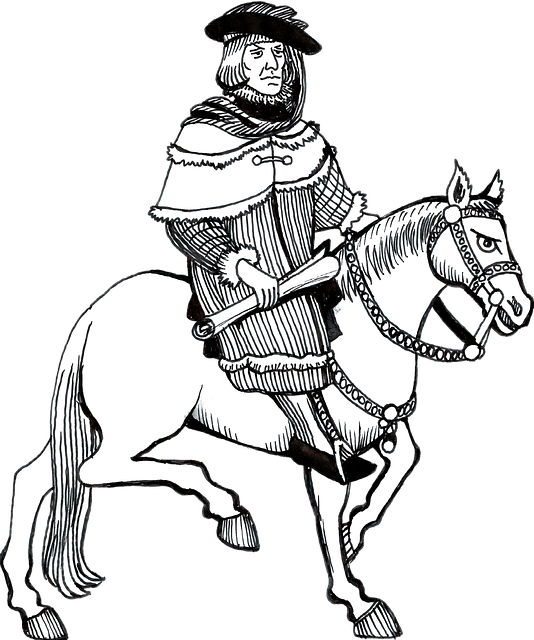By Tim Lambert
His Early Life
Geoffrey Chaucer was a great English writer of the 14th century. Chaucer was born between 1340 and 1343 but we don’t know the exact date. His father was a wine merchant in London. Little is known about the early life of Geoffrey Chaucer. He was first recorded in the year 1357 when he was employed by Elizabeth, Countess of Ulster.
Chaucer joined the campaign in France in 1359 and he was captured. (In those days it was normal to capture high-ranking people on the battlefield and charge a ransom for them.) At some point afterward Chaucer joined the king’s service. He traveled abroad several times including visits to Italy in 1373 and 1378.
By 1366 Geoffrey Chaucer was married to a woman named Philippa. The couple had two sons. They probably also had one or two daughters but the exact number of children they had is not known.
In 1374 Chaucer was made a customs official in London. The same year he was granted a gallon of wine daily although in 1378 it was changed to a money payment. Also in 1374, Chaucer was given a home over Aldgate in London, rent-free. However, in 1386 he moved to Kent. That same year Chaucer was elected an MP for Kent.
Chaucer the Writer
Meanwhile, his reputation as a poet was growing. Sometime in the 1380s, Chaucer wrote the poem Troilus and Criseyde. He also wrote The Legend of Good Women.
However, Geoffrey Chaucer is most famous for his work, The Canterbury Tales. They are a series of tales told by a group of pilgrims on their way to Canterbury. (In the Middle Ages people believed their sins would be forgiven if they went on journeys called pilgrimages).
Chaucer also wrote a technical book called Treatise on the Astrolabe. (An astrolabe was an instrument used in astronomy).
Meanwhile, Chaucer held other posts. From 1389 to 1391 he was clerk of the king’s works, responsible for overseeing royal building projects. Then in 1391, Chaucer became Deputy Forester in the royal forest of Petherton Park in North Petherton in Somerset. Finally, in 1394 the king granted him a pension of 20 pounds a year (a considerable amount of money in those days).
Geoffrey Chaucer died in 1400. (The traditional date of his death is 25 October). The cause of his death is unknown. Chaucer was buried in Westminster Abbey.

There is a crater on the Moon named after Chaucer.